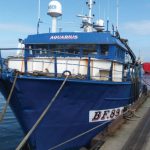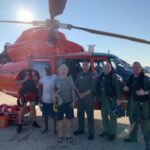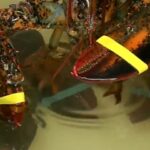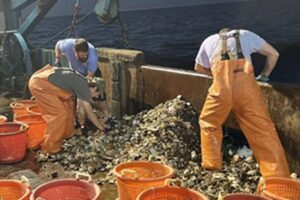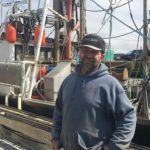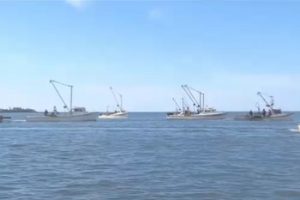Tag Archives: Fish Food & Allied Workers
FFAW broke collective agreement by telling crab fishermen to keep boats tied up, arbitrator rules
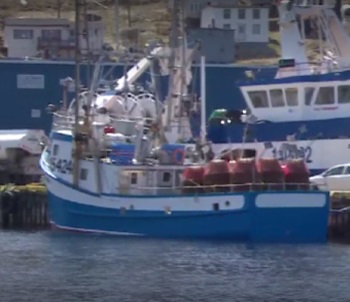 An arbitrator has ruled the Fish, Food & Allied Workers union broke its collective agreement with the Association of Seafood Producers by telling crab harvesters to keep their boats tied up at the start of last season amid a price dispute. In his decision, shared by the producers’ association Tuesday, arbitrator David Orsborn concluded the union declared a “cessation of business dealings,” which violated the terms of the agreement and the Fishing Industry Collective Bargaining Act. The tie-up lasted six weeks, and was fuelled by calls for better prices for harvesters. The price of snow crab was originally set at $2.20 per pound — where it remained when the tie-up ended — but rose to $2.60 per pound by the end of the season. Video, more, >>click to read<< 17:52
An arbitrator has ruled the Fish, Food & Allied Workers union broke its collective agreement with the Association of Seafood Producers by telling crab harvesters to keep their boats tied up at the start of last season amid a price dispute. In his decision, shared by the producers’ association Tuesday, arbitrator David Orsborn concluded the union declared a “cessation of business dealings,” which violated the terms of the agreement and the Fishing Industry Collective Bargaining Act. The tie-up lasted six weeks, and was fuelled by calls for better prices for harvesters. The price of snow crab was originally set at $2.20 per pound — where it remained when the tie-up ended — but rose to $2.60 per pound by the end of the season. Video, more, >>click to read<< 17:52
Seafood-pricing system is flawed and a new one needs to be in place by end of January, says report
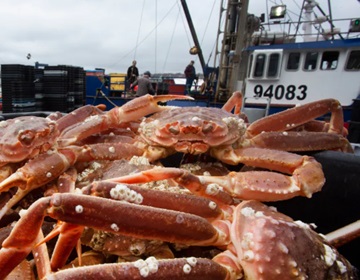 A new report from the Newfoundland and Labrador government says the current seafood price-setting process is flawed, and it outlines the need for a formula-based system that would improve the industry for harvesters and plant owners. The report was sparked by a tie-up in the spring that delayed the start of the snow crab fishery. Prices were set at just $2.20 per pound at the start of the season, and the Fish, Food & Allied Workers union and Association of Seafood Producers failed to produce an agreeable pricing formula. It says the current process for price setting, which is done by a panel, is flawed — and that the panel has an “impossible task” when faced with a fluctuating market. >>click to read<< 17:56
A new report from the Newfoundland and Labrador government says the current seafood price-setting process is flawed, and it outlines the need for a formula-based system that would improve the industry for harvesters and plant owners. The report was sparked by a tie-up in the spring that delayed the start of the snow crab fishery. Prices were set at just $2.20 per pound at the start of the season, and the Fish, Food & Allied Workers union and Association of Seafood Producers failed to produce an agreeable pricing formula. It says the current process for price setting, which is done by a panel, is flawed — and that the panel has an “impossible task” when faced with a fluctuating market. >>click to read<< 17:56

Tensions rise in snow crab negotiations as producers make talks with union public
The head of Newfoundland and Labrador’s Association of Seafood Producers is now putting negotiations with the Fish, Food & Allied Workers union out in the open, saying the union mischaracterized meetings between the two groups. The two sides met Wednesday to discuss what the FFAW called a final counter offer from the ASP in the battle for better snow crab prices for harvesters. The offer surfaced in a >news release from the union on Wednesday night<, saying it was made by the ASP. On Thursday morning, ASP executive director Jeff Loder said that statement is untrue. Now, after the FFAW’s press release, Loder says his association will be making any negotiations with the union public. >click to read< 15:14
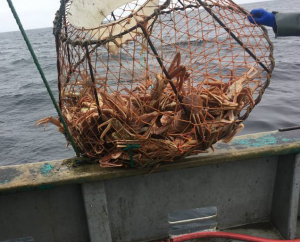
Tentative deal reached that could see snow crab harvesters back on the water
The Fish, Food & Allied Workers union has reached a tentative deal that could see snow crab harvesters back on the water in short order. The FFAW and the Association of Seafood Producers (ASP) have been stuck in a stalemate for weeks over the $2.20 per pound price set by the provincial price setting panel in early April. The industry is worth about $756 million. Many harvesters have said the $2.20 price wouldn’t make for a viable season after two years that saw prices over $7 per pound and the rising cost of fuel and other supplies. However, $2.20 per pound will still be the price for the catch but will remain in place for the entire season, not just for the three-week window offered by the ASP before it sought a price reconsideration from the price setting panel. Video, >click to read< 18:27

N.L. fisheries minister urges union to hold secret ballot vote on snow crab harvest
Newfoundland and Labrador Fisheries Minister Derrick Bragg has urged the Fish, Food & Allied Workers union to hold a secret ballot vote asking snow crab harvesters if they are ready to fish at $2.20 per pound. Harvesters have stayed off the water three weeks into the province’s most lucrative fishery, as they protest what they consider a catastrophic price of $2.20 per pound. The topic came to a head earlier this week, when the Association of Seafood Producers called out intimidation and harassment levelled at fish harvesters who have expressed a willingness to fish for $2.20 a pound. >click to read< 10:51
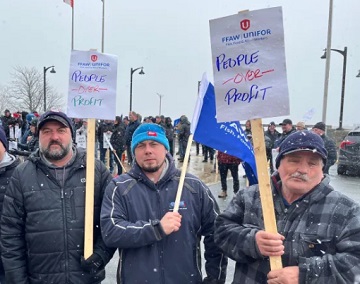
UPDATED: With their season on hold, fishermen protest low price of crab on the steps of the N.L. legislature
With the price of snow crab less than one-third of what it was a year ago, Newfoundland and Labrador’s fishermen are rallying on the steps of the provincial legislature Monday morning to demand government action on the province’s most lucrative fishery. Members of the Fish, Food & Allied Workers union say they can’t afford to fish crab at the $2.20 per pound set earlier this month. Fishing season is open, but harvesters are keeping their boats docked in the hopes of getting a higher price. >click to read< with live stream feed.
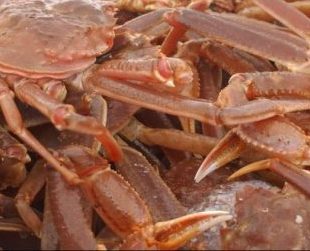
Hopes dashed for crab-pricing formula as union-producer talks end in failure
It started out six weeks ago as a rare show of unity between the fisheries union and seafood producers, but efforts to agree on a price formula for this year’s snow crab harvest have ended in failure. Jeff Loder, executive director of the Association of Seafood Producers, said in a press release issued Tuesday afternoon that the group couldn’t reach an agreement with the Fish, Food & Allied Workers union, which represents Newfoundland and Labrador’s inshore fishermen. “We negotiated in good faith with our best efforts to find a collaborative solution with the FFAW by defining a formula that works for both parties. Unfortunately, this was not possible,” says the release. >click to read< 15:37
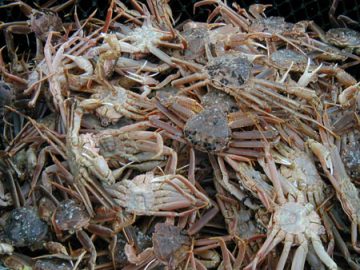
New leaders of FFAW and ASP pledge to work together for 2023 snow crab season
The Fish, Food & Allied Workers union and the Association of Seafood Producers have long butted heads over issues related to the fishing industry but say they’re facing historic challenges this season and want to avoid any problems from the outset. “In light of the challenges we are facing this year, we have agreed that our best approach is to collectively discuss the challenges the crab fishery is facing and to seek support from both levels of government to ensure that we have a successful crab fishery in 2023,” said Paul Grant, board chair of the seafood producers’ board, in a press release ahead of the media availability. >click to read< 11:41
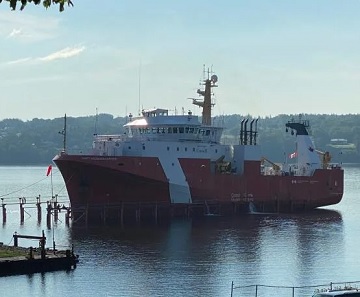
Fall fish stock surveys won’t happen again
The Department of Fisheries and Oceans says 2022 will be another year without fish stock surveys, as it prioritizes transition work needed to replace older vessels in an aging fleet. The scientific surveys are used to assess the health of major fish stocks and are critical in determining quotas for commercial fisheries worth hundreds of millions of dollars in Atlantic Canada. Those inside the industry say DFO is falling short on their mandate and can’t make the most informed decisions on future quotas due to the limited data. >click to read< 07:33

Labour Minister Bernard Davis to launch review of N.L.’s price-setting system
The review follows weeks of bickering, including several harvester-led protests in recent days on the Northern Peninsula between harvesters and processors over a stalemate in the shrimp fishery that has delayed the harvest. It also comes on the heels of a decision by the provincial government to provide mediation services between the Fish, Food & Allied Workers union and the Association of Seafood Producers in hopes of resolving friction in the shrimp fishery. “It is incumbent on me, as minister responsible for labour, to ensure that we have legislation that is responsive to the needs of  the industry,” said Davis in the release. Also in the release, Fisheries Minister Derrick Bragg said an efficient and effective price-setting system is “key to ensuring fisheries commence in a timely manner for the maximum benefit of the province’s fishing industry.” >click to read< 10:26
the industry,” said Davis in the release. Also in the release, Fisheries Minister Derrick Bragg said an efficient and effective price-setting system is “key to ensuring fisheries commence in a timely manner for the maximum benefit of the province’s fishing industry.” >click to read< 10:26
Ocean Choice to Purchase Shrimp at Competitive Price – Ocean Choice’s processing facility in Port aux Choix will be purchasing shrimp at a rate above the minimum price set by the Standing Fish Price-Setting Panel. >click to read<
Personal locator beacons – New coalition is making the devices cheaper for fishermen
There have been 20 fatalities in the province’s fishing industry over the past 10 years, and the bodies of five of those fishermen have never been recovered. So the Newfoundland and Labrador Fish Harvesting Safety Association has partnered with the Fish Harvesters’ Resource Centre, the Professional Fish Harvesters Certification Board, and the Fish Food & Allied Workers union to subsidize the cost of 2,500 beacons. Video, >click to read< 09:20

Water content deductions keeping harvesters sitting out the summers sea cucumber fishery
Sea cucumbers represent a $10-million industry in Newfoundland and Labrador, according to Fish Food & Allied Workers president Keith Sullivan. The creatures are a delicacy in Asian countries and other markets, and fetch a price of 70 cents per pound, according to the province’s fishery pricing panel. When catches are landed, processors drain the water inside sea cucumbers to remove the weight of the sea water from the buying price. 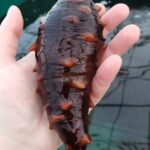 Harvesters used to deduct 23 per cent of the sea cucumber’s weight across the board to account for the water, but that percentage has been changed in the past year, and Sullivan says the harvesters’ bottom lines are being impacted. “Whereas other years you might be getting paid for 80 per cent or close to that of the animal, this year in a couple of cases we’re talking just over 50 per cent,” >click to read< 11:43
Harvesters used to deduct 23 per cent of the sea cucumber’s weight across the board to account for the water, but that percentage has been changed in the past year, and Sullivan says the harvesters’ bottom lines are being impacted. “Whereas other years you might be getting paid for 80 per cent or close to that of the animal, this year in a couple of cases we’re talking just over 50 per cent,” >click to read< 11:43
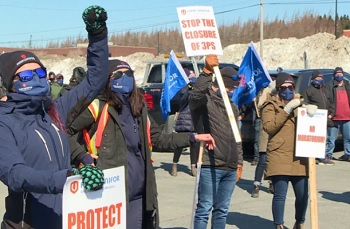
Tension over stocks – 3Ps Cod fishery closure ‘not going to happen on my watch,’
Fish harvesters rallied in Clarenville on Wednesday, voicing their fears that the federal government may shut down the cod fishery along Newfoundland’s south coast, a move the local member of Parliament says he won’t support. Dozens of members from the Fish, Food & Allied Workers union protested on the doorstep of the office of Liberal MP for Bonavista-Burin-Trinity, Churence Rogers, filling the parking lot with signs and the air with strong words about the fate of the fishing grounds 3Ps. Fish harvester Brian Careen said he’s spent most of his life fishing in the area, and told the crowd he feared it will be taken away by the Department of Fisheries and Oceans. >click to read< 10:58
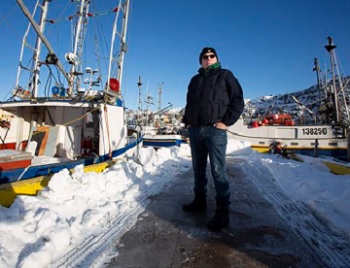
Is politics getting in the way of rebuilding a sustainable fishery in Newfoundland?
The sentinel program, created after the cod moratorium in 1992 to monitor fish populations, is run exclusively by the Fish Food & Allied Workers, the powerful union that represents around 15,000 fishermen, fish plant employees and other workers in the province. DFO relies on data from the sentinel fishery to help assess fish stocks, and has paid the union millions to run the program. “The FFAW and the DFO are cheating the fishermen out of a resource that belongs to the people of Newfoundland,” said Jason Bateman, a former enforcement officer with DFO. Ryan Cleary, a former member of Parliament for St. John’s-Mount Pearl and an outspoken critic of the FFAW, said the union has found a way to prosper since the collapse of cod by integrating itself into fisheries management, acting almost as a regulator, while becoming a vocal industry voice that contradicts science. >click to read< 17:55
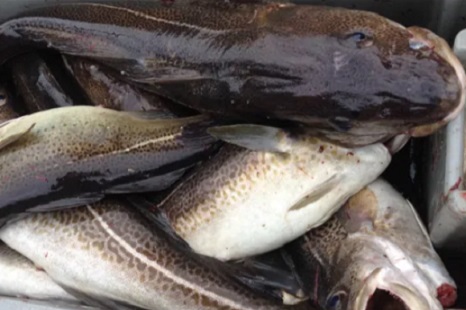
DFO has a new plan for northern cod stocks. It doesn’t include more fishing
The rebuilding plan, made public with little fanfare on Dec. 21 after years in development, outlines the Department of Fisheries and Ocean’s objectives to boost fish numbers and the management techniques it intends to use to measure any progress starting in 2021. Northern cod numbers have ticked upwards since the 1992 moratorium brought harvesting and processing to a screeching halt. A small stewardship fishery now exists, with 1,865 licence holders allotted a maximum harvest of around 12,000 tonnes of cod in 2020. But 28 years later, stocks remain well below pre-moratorium levels, and in DFO terminology, remain squarely in a “critical zone.” >click to read< 11:15
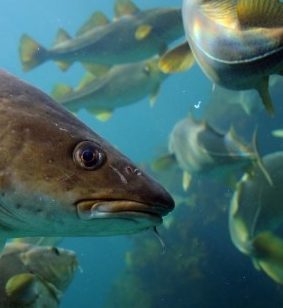
Cod Cannibalism: With natural prey like capelin and shrimp in decline, cod are eating their young
Stalled. That’s how research scientist Karen Dwyer of the Department of Fisheries and Oceans describes the northern cod stock following this year’s assessment. Ecosystem conditions appear to be the main factor, said Dwyer — especially low stocks of capelin and shrimp. “Both of those prey are very important in driving the population dynamics for cod,” she said. While there’s been an increase in different types of zooplankton, Dwyer said, there’s been a decrease in fatty zooplankton. “There used to be large numbers of large fatty zooplankton, full of fat, which are really good for young fish to eat, young fish such as capelin or even young cod,” she said. “Over time they’ve seen a decline in these large fatty zooplankton.” >click to read< 07:18
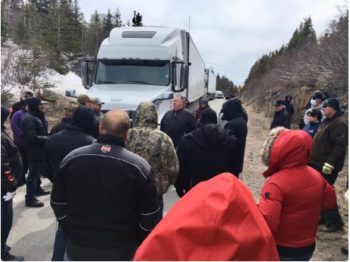
Crab trucks roll toward Triton after confrontation in South Brook – Crab fishery delayed until at least May 11
By noon on Tuesday, the trucks began to roll toward the fish plant, but were being slowed by protesters. RCMP were on hand ticketing the drivers who were interfering with their progress. >click to read< 16:56
Crab fishery delayed until at least May 11, following days of protests – After two days of protests by fish harvesters, the snow crab fishery in Newfoundland and Labrador has been delayed until at least May 11. DFO issued a media release at 5 p.m. Tuesday saying the exact start of the season has not yet been determined. That delay comes after several days of protests in several different locations in the province. The protests started late Sunday in Port aux Basques when the Fish, Food & Allied Workers union, which represents fish harvesters, learned snow crab was being brought in from outside the province to be processed. Late Tuesday afternoon, two transport trucks were able to offload crab,, >click to read< 17:03
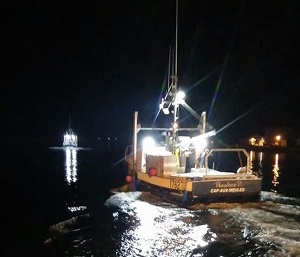
OCI granted injunction as fishermen block out-of-province crab
The Supreme Court of Newfoundland and Labrador has granted Ocean Choice International an injunction ending the Fish, Food & Allied Workers union’s blockade on the highway near South Brook. The injunction prohibits FFAW members from blocking the route to OCI’s processing plant in Triton or interfering with customers or contractors entering the property. It’s the latest development in an argument between the union and Association of Seafood Producers over whether the fishery should be up and running during the COVID-19 pandemic. Union members blocked two fishing vessels from the Magdalen Islands from offloading crab in Port aux Basques on Sunday evening. >click to read< Protesters Who Blocked Out-of-Province Crab Shipment Facing Court Injunction, tweets, >click to read< 18:04




































